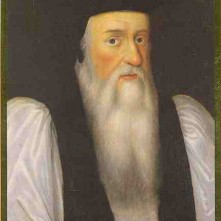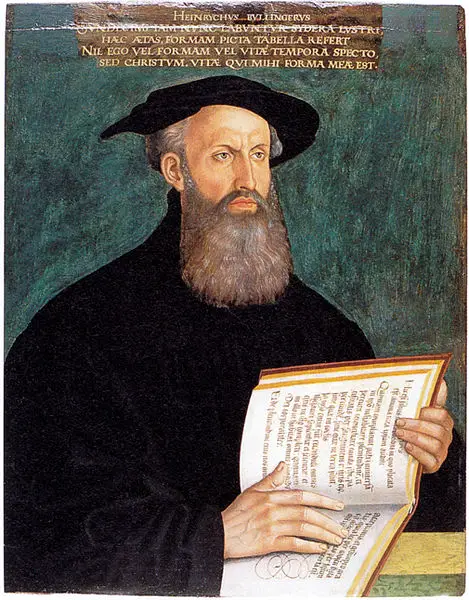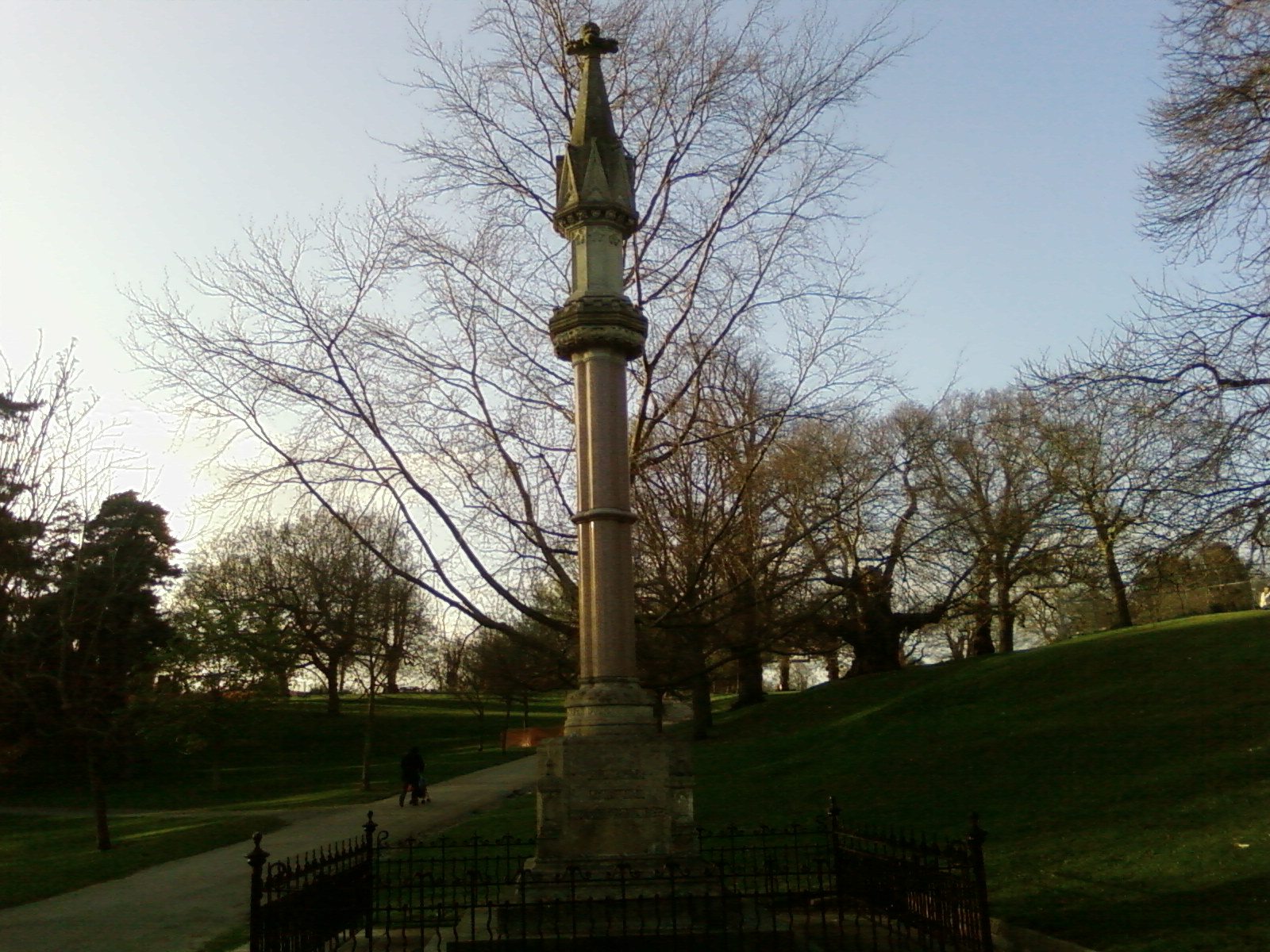7 September
 1500 – Birth of Sebastian Newdigate, member of Henry VIII's Privy Chamber, Carthusian monk and Roman Catholic martyr, at Harefield in Middlesex.
1500 – Birth of Sebastian Newdigate, member of Henry VIII's Privy Chamber, Carthusian monk and Roman Catholic martyr, at Harefield in Middlesex.
1523 – Birth of Alice Barnham (née Bradbridge), silkwoman and benefactor, at Chichester. Alice is known for being one of the subjects of one of the earliest English family group portraits: “Alice Barnham and her Sons Martin and Steven” (once entitled “Lady Ingram and her Two Boys Martin and Steven” in error) from 1557.
1533 - Birth of Queen Elizabeth I, daughter of Henry VIII and Anne Boleyn, at Greenwich Palace.
1571 – Arrest of Thomas Howard, 4th Duke of Norfolk, for his part in the Ridolfi Plot to assassinate Elizabeth I and to replace her with Mary, Queen of Scots. Howard confessed to corresponding with Mary's supporters and was taken to the Tower of London. He was executed on 2nd June 1572 after being found guilty of high treason.
1587 – Burial of Richard Barnes, Bishop of Durham during Elizabeth I's reign, in the choir of Durham Cathedral.
8 September
1462 – Birth of Henry Medwall, the playwright known as England's first vernacular dramatist. His 1497 play “Fulgens and Lucres” is the first known secular play written in English. He also wrote a play entitled “Nature”.1475 – Birth of John Stokesley, Bishop of London and Ambassador, at Collyweston, Northamptonshire. Stokesley supported Henry VIII's quest for an annulment of his marriage to Catherine of Aragon, and carried out diplomatic missions for the cause.
1495 – Death of Sir William Hussey, Chief Justice of the King's Bench in Edward IV's reign.
1560 - Amy Dudley (née Robsart), wife of Robert Dudley, Earl of Leicester, died at her home, Cumnor Place in Oxfordshire. Her servants found her body at the bottom of the stairs when they returned from “Our Lady's Fair” at Abingdon, and it appeared that she had fallen down the stairs.
1601 – Burial of John Shakespeare, father of playwright William Shakespeare, at Stratford-upon-Avon.
1603 – Death of George Carey, 2nd Baron Hunsdon, courtier, son of Henry Carey, 1st Baron Hundson, and grandson of Mary Carey (née Boleyn). Carey served Elizabeth I as Marshal of the Household, Justice of the Peace, Lord Lieutenant of Hertfordshire, Captain of the Isle of Wight, member of Parliament, Captain of the Gentlemen Pensioners, Lord Chamberlain and Privy Councillor.
9 September
1513 - The Battle of Flodden between England and Scotland. Thomas Howard, Earl of Surrey, led the English foce and was victorious over that of James IV, who died at the battle.
1543 – The infant Mary, Queen of Scots, daughter of James V, King of Scotland, was crowned queen at Stirling Castle.
1583 – Death of Sir Humphrey Gilbert, explorer, soldier, member of Parliament and half-brother of Sir Walter Ralegh, on board The Squirrel after a storm off the Azores. The crew of the Golden Hind heard Gilbert shout “We are as near to heaven, by sea as by land” as The Squirrel sank.
10 September
1515 – Thomas Wolsey was made Cardinal.1533 - Princess Elizabeth, daughter of Henry VIII and Anne Boleyn, was christened at the Church of Observant Friars in Greenwich.
1543 – Death of Sir Edward Chamberlayne, Oxfordshire gentleman and soldier. He was buried at Woodstock.
1547 – The Battle of Pinkie Cleugh, part of the War of the Rough Wooing between England and Scotland. It took place near Musselburgh, in Scotland, on the banks of the River Esk. The English forces, led by Edward Seymour, Duke of Somerset, defeated the Scots, killing thousands.
1549 – Death of Sir Anthony Denny, Henry VIII's great friend and groom of the stool, at Cheshunt. He was buried in St Mary's Church, Cheshunt.
1557 – Execution of Joyce Lewis (née Curson and other married name Appleby, Lady Appleby), Protestant martyr, at Lichfield. She was burned at the stake for her Protestant beliefs.
1569 – Death of Gilbert Bourne, Bishop of Bath and Wells, at Silverton in Devon. Bourne was deprived of his see in Elizabeth I's reign after refusing to take the “Oath of Supremacy”. He was buried in Silverton Church.
1604 – Death of William Morgan, Bishop of St Asaph and Bible translator, at the Bishop's Palace at St Asaph. He was buried there in the cathedral church.
11 September
1540 – Death of Thomas Kytson (Kitson) the Elder, merchant, Sheriff of London and builder of Hengrave Hall in Suffolk. He died at Hengrave and was buried in the church there.1561 – Mary, Queen of Scots began her first royal progress, visiting Holyrood Palace, Edinburgh Castle, Linlithgow Palace, Stirling Castle, Kincardine Castle, Leslie Castle, Perth, Dundee, St Andrews, Cupar, Falkland Palace and Edinburgh, between the 11th and 29th September.
1572 - Pope Gregory XIII ordered a joint commemoration for the defeat of the Ottoman troops by the Holy League at the Battle of Lepanto on 7th October 1571, and for the St Bartholomew's Day Massacre of the Huguenots in France, in August 1572.
1581 – Death of Barnaby Fitzpatrick, 2nd Baron of Upper Ossory, at Dublin, in the home of a surgeon, William Kelly. In his youth, Fitzpatrick had been friends with Prince Edward (future Edward VI) and had been educated with him. He went on to serve his friend, when he became king, as a Gentleman of the Privy Chamber.
1605 – Death of Sir Thomas Tresham the Younger, Catholic recusant politician, at his home, Rushton Hall, in Northamptonshire. He was buried at St Peter's Church, Rushton.
1613 – Death of Sir John Brograve, lawyer. He was buried at St Mary's Church, Braughing, Hertfordshire in the Brograve Chapel. Brograve was one of the leading lawyers in the House of Commons in Elizabeth I's reign.
1614 – Death of Sir Edward Phelips, Elizabeth I's Sergeant-at-Law and Speaker of the House of Commons in James I's reign. He died at Rolls House, London, and was buried at St Catherine's Church, Montacute, Somerset.
12 September
1542 – Death of Sir Edmund Knightley, lawyer and Sergeant-at-Law. He was buried at Letheringham in Suffolk.1544 – Baptism of Richard Bancroft, Archbishop of Canterbury in the reign of James I, at Prescot, near Farnworth, in Lancashire.
1555 - The trial of Archbishop Cranmer began in the University Church of St Mary the Virgin at Oxford. He was accused of two offences, or doctrinal errors: repudiating papal authority and denying transubstantiation. Cranmer was burned at the stake on 21st March 1556.
1559 – Death of Marten Micron (Martin Micronius), Dutch theologian and Protestant minister in the strangers' churches of London , from the plague at Norden in Lower Saxony, Germany.
1573 – Sudden death of Archibald Campbell, 5th Earl of Argyll, Protestant reformer and a leading politician in the reign of Mary, Queen of Scots, at Barbreck. He had got married six weeks earlier and had shown no signs of illness before retiring to bed. He was laid to rest in the family mausoleum at Kilmun Church on the Holy Loch.
13 September
c.1503 – Birth of John Leland, poet and antiquary. Leland is known for his Latin poems and his antiquarian writings which included Assertio inclytissimi Arturii regis Britanniae, which he presented to Henry VIII, his “New Year's Gift” to Henry VIII, Antiquitates Britanniae, De uiris illustribus, his travel notes and his defence of the legends of King Arthur.1520 - Birth of William Cecil, 1st Baron Burghley and Elizabeth I's chief advisor, at Bourne in Lincolnshire.
1544 – Death of Edward Lee, Archbishop of York. He was buried at York Minster, in the south choir aisle. Lee served Henry VIII as his almoner and a diplomat, as well as being an archbishop.
1557 – Death of Sir John Cheke, Tudor scholar, one time tutor to Edward VI, Secretary of State for Lady Jane Grey and the first Regius Professor of Greek at Cambridge University. He died at the home of his friend, Peter Osborne, in Wood Street, London, probably from influenza, and was buried nearby at the church of St Alban, Wood Street, in the north chapel of the chancel.
1596 – Death of Sir Francis Englefield, courtier, politician and pro-Spanish Catholic exile, at St Alban's College in Valladolid, Spain. He was buried in the college chapel.
1598 – Death of Philip II of Spain at El Escorial, near Madrid. He was buried there the next day. It is thought that he died of cancer, and he had been ill for fifty-two days.








Leave a Reply